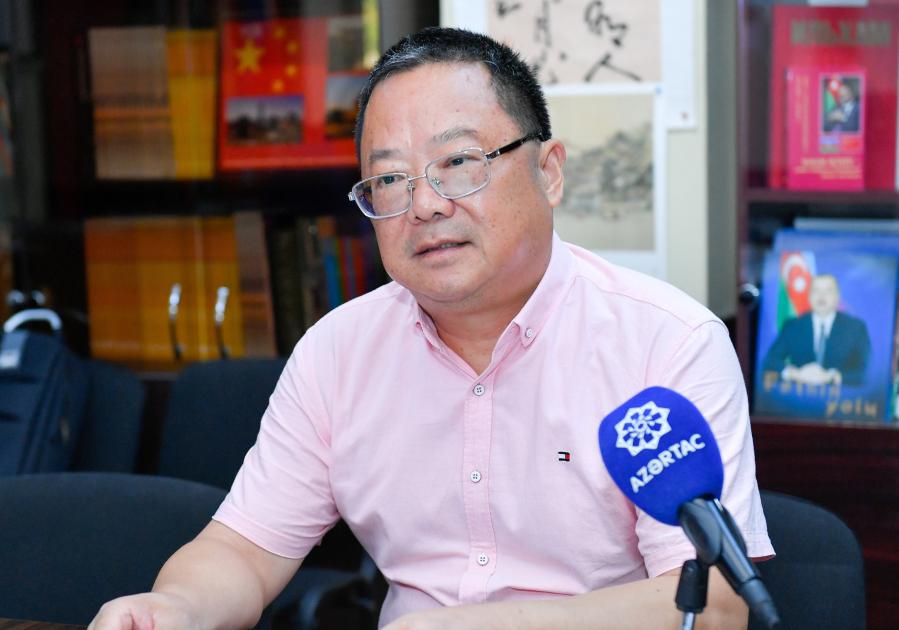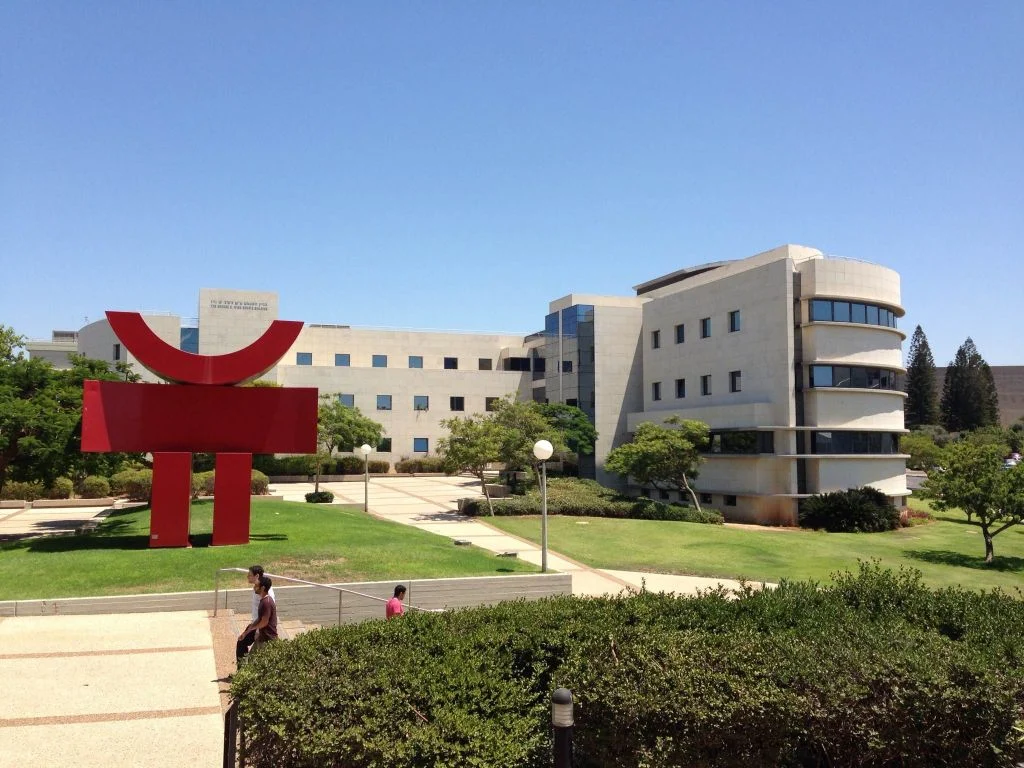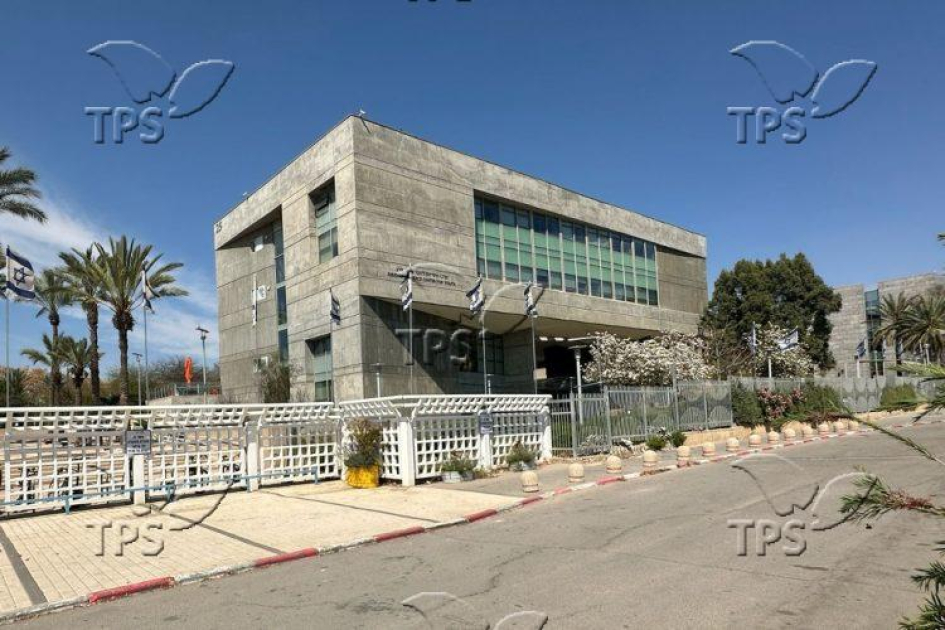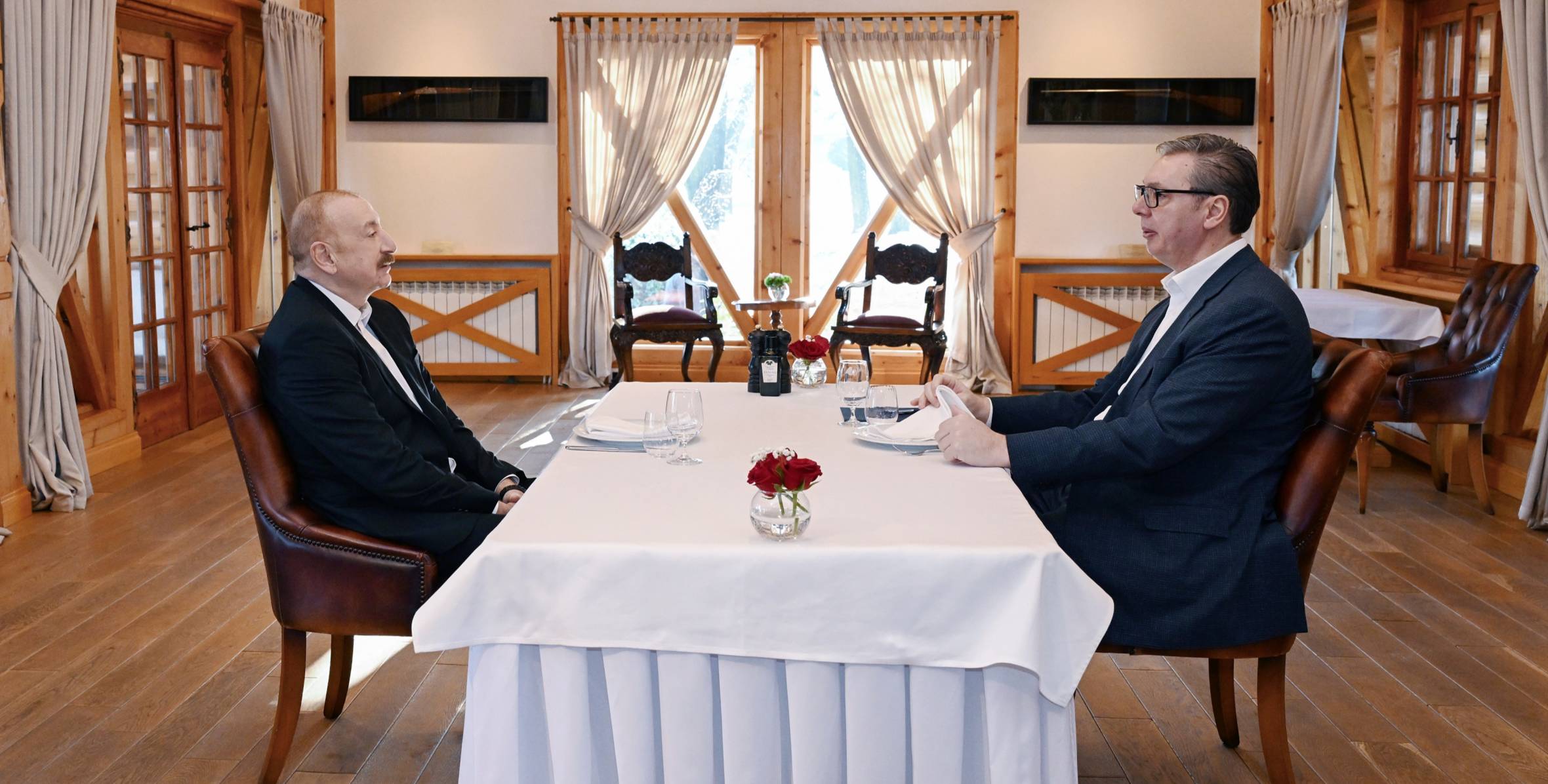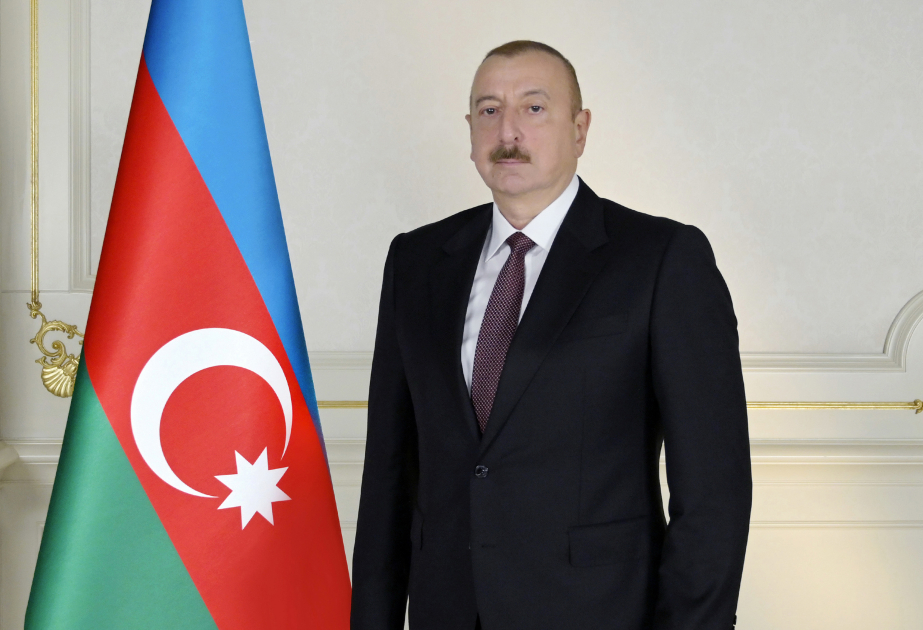SOCIETY
Yang Jianchu: China and Azerbaijan aim for significant progress in Belt and Road Initiative implementation
29.08.2024 [18:59]
A+ A-
1 / 2
Baku, August 29, AZERTAC
Yang Jianchu, Secretary General of the China Think Tanks Alliance and Regional Coordinator of the Chinese delegation to the upcoming COP29 Conference, is currently visiting Azerbaijan. In an exclusive interview with AZERTAC, he discussed the cooperation between Azerbaijan and China within the framework of COP29, as well as relations between the two countries.
AZERTAC presents the interview:
- Mr. Jianchu, climate change presents a fundamental threat affecting billions of people worldwide. The escalating geopolitical tensions and uncertainty at the international level should encourage states to collaborate in combating climate change, which is the most pressing transnational challenge of the century. Is China, as a global giant, taking concrete steps in this regard? Considering Azerbaijan’s leadership role in the South Caucasus and its position as a powerful state in the CIS region, is there a prospect for joint projects between Beijing and Baku in this area?
– The purpose of my current visit to Azerbaijan is to tour the Confucius Institute at Azerbaijan University of Languages, prepare for the Chinese delegation’s participation in COP29, and hold a scientific seminar on the “Carbon Neutrality Peak” and “Green Belt and Road” initiatives. In the modern world, climate change affects the lives of billions of people. The growing geopolitical tension and uncertainty have a certain impact on international cooperation in addressing climate change issues. Global cooperation to collectively address climate-induced problems is the biggest challenge of the century.
The Chinese government places significant importance on environmental protection and actively addresses climate change. In 2005, during a visit to Zhejiang province, Chinese President Xi Jinping introduced scientific ideas such as “Clean water and green hills are priceless treasures" and "Environmental policy leads to both the rise of civilization and its decline." At the opening ceremony of the Climate Conference in Paris on November 30, 2015, Xi Jinping emphasized that the Paris Agreement is not the final result but a new starting point. He stressed that all parties must demonstrate sincerity, build trust, and collaborate to promote a fair and effective global response to climate change, achieve a higher level of sustainable development worldwide, and establish international relations based on mutually beneficial cooperation. On January 18, 2017, Xi Jinping delivered a speech at the UN Headquarters in Geneva on “Jointly Building a Community with a Shared Future for Mankind,” underscoring the importance of adhering to the concepts of harmony between humanity and nature and following a path of sustainable development. On October 12, 2021, while addressing the COP15 Conference, Xi Jinping emphasized that ecological civilization represents a historical trend in the evolution of human civilization. He urged: “Let us join hands, follow the philosophy of ecological civilization, and shoulder our responsibility for future generations. Let us make joint efforts to build a community of all life on Earth and create a clean and beautiful world for us all.”
The recently concluded Third Plenary Session of the 20th Central Committee of the Communist Party of China (CPC Central Committee) stressed that Chinese-style modernization aims for the harmonious coexistence of humanity and nature. The session highlighted the need to improve the institutional framework for ecological civilization, coordinate efforts to reduce carbon emissions and pollution, expand the green economy and economic growth, and actively respond to climate change. Additionally, it called for speeding up the enhancement of systems and mechanisms to ensure access to clean water, fresh air, and the efficient use of valuable resources. The CPC Central Committee and the State Council also recently released recommendations to advance the green transition across all areas of economic and social development and to improve the environmental governance system. These recommendations describe the promotion of green and low-carbon economic and social development as core objectives.
This time, COP29 will take place in Baku. More delegates from China are expected to attend the conference due to Azerbaijan's implementation of a visa-free travel policy for Chinese nationals. During the COP29 conference, we will present a vision of jointly building a global ecological civilization and advocate for collective action by the international community to create a planet with a healthy ecology. We will also propose Chinese solutions, enriched with Eastern wisdom, for sustainable development and global environmental management. China and Azerbaijan will seize this opportunity to work together to make significant progress in clean energy, green transportation, and reducing pollution and carbon emissions. Additionally, this cooperation will create greater opportunities for advancing the Belt and Road initiative.
– As the COP29 Presidency, Azerbaijan has declared its intention to advocate for a global ceasefire during the conference. Will China support this initiative?
– I cannot speak on behalf of the country, but I personally support the peace initiative. During COP28 in Dubai, I suggested: “Go green, don't fight; it is necessary to strive for development, not poverty, and to strive for cooperation, not conflict. Work for justice, not intimidation!"
- Azerbaijan has also proposed the creation of a special fund to support developing countries in addressing climate change and increased funding for measures in this area. Previously, there was an agreement to allocate $100 billion per year for these purposes, but it became evident that this amount is insufficient. What do you think is the optimal amount of annual funding for emissions reduction measures?
– We fully agree with Azerbaijan’s proposal to establish a special fund to support developing countries in addressing climate change. Although $100 billion a year is insufficient, it can serve as initial seed funding. We should then encourage responsible developed countries and socially responsible companies to donate to the fund and help it grow. At the same time, the funds need to be properly managed and utilized. The fund’s resources can be directed in several ways: first, by supporting research, development, and application of high-tech technologies for energy saving, pollution reduction, and carbon emission cuts; and second, by strengthening youth involvement in climate action and supporting NGOs in their climate change efforts.
x x x
As Rafig Abbasov, Director of the Confucius Institute at Azerbaijan University of Languages, noted, the Confucius Institute is actively participating in preparations for COP29. This Institute is organizing scientific seminars for students on China's policies and actions to combat climate change, including the development of a national green, low-carbon closed-loop economic system, the ecological modernization of Chinese infrastructure, and the creation of a market-oriented innovation system for "green" technologies. Additionally, the Confucius Institute hosted a presentation of books by Chinese environmental scientists titled "Carbon Peak and Carbon Neutrality: China in Action" and "The Beauty of Ancient Villages," which focus on Chinese environmental projects aimed at establishing a rational system of global climate governance and promoting ecological civilization.


